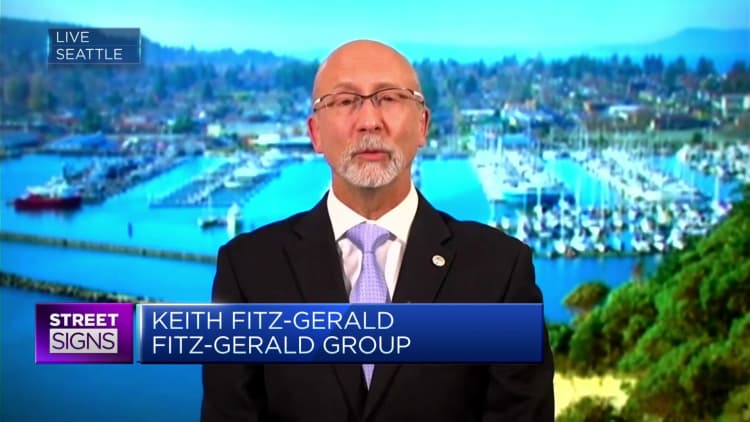[ad_1]
Google Cloud CEO Thomas Kurian speaks at the Google Cloud Next event in San Francisco, April 9, 2019.
Michael Short | Bloomberg | Getty Images
Google, which has spent years defending itself against claims of monopolistic behavior across the U.S. and Europe, is going public with its own complaint of anti-competitive practices by longtime rival Microsoft.
In a letter to the Federal Trade Commission on Wednesday, Google alleged Microsoft uses unfair licensing terms to “lock in clients” to exert control over the cloud-computing market.
The letter was sent in response to a broad FTC request for comment on potential anti-competitive acts in the cloud industry. A spokesperson for the FTC declined to comment further.
Google singled out Microsoft in the complaint, arguing that through its dominant Windows Server and Microsoft Offices products, the company can make it difficult for its massive roster of clients to use anything but its Azure cloud infrastructure offering. Google described Microsoft’s licensing restrictions as a “complex web” that prevents businesses from diversifying their enterprise software vendors.
Google also said such control represents a significant national security and cybersecurity risk. It highlighted successive cyberattacks involving Microsoft products, including the SolarWinds breach. Microsoft and Google both have active cybersecurity practices that respond to and research cyber threats.
Google is no stranger to antitrust concerns. In January, the U.S. Department of Justice filed its second antitrust lawsuit against Google in just over two years, targeting its advertising business.
The department’s earlier lawsuit, filed in October 2020 under the Trump administration, accused Google of using monopoly power to cut off competition for internet search through exclusionary agreements. That case is expected to go to trial in September.
Google also faces three other antitrust lawsuits from large groups of state attorneys general, including one focused on its advertising business led by Texas Attorney General Ken Paxton.
In its FTC letter, Google also alleged Oracle’s practices are harmful to customers.
“With overly complex agreements that seek to lock in clients to their ecosystems,” Google said, companies such as Microsoft and Oracle “are not only forcing customers toward a monolithic cloud model but also limiting choice, increasing costs for customers, and disrupting growing and thriving digital ecosystems in the U.S. and around the world.”
In the 1990s, Microsoft was involved in one of the most notorious antitrust cases in U.S. history. The company was accused of using its dominance in desktop software to push consumers to its internet browser, killing off competition from upstarts such as Netscape. The government won the case, ultimately forcing Microsoft to allow PC makers to use other companies’ browsers.

[ad_2]
